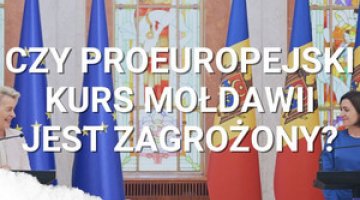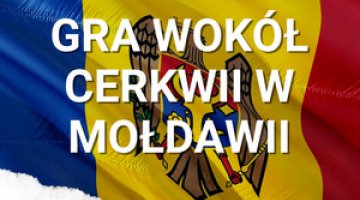Analyses
Plahotniuc in the USA: legitimising the Moldovan oligarch
At the beginning of May the US hosted a delegation of Moldovan politicians, including Vlad Plahotniuc, the most influential man in Moldova, who has de facto control of the government and parliament; and Octavian Calmîc, the deputy prime minister and minister of the economy. Plahotniuc was met (among others) by Victoria Nuland, the Assistant Secretary of State responsible for Eastern Europe, and Menno Snel, executive director of the IMF. According to an official communiqué on the Democratic Party of Moldova (PDM)’s web page, Nuland openly supported the policy of the Moldovan government, which is controlled by Plahotniuc. She stated: “Continue at the current pace, and we will support you.”
Commentary
- These high-level meetings took place even though Plahotniuc does not formally hold a significant political post (he is currently vice-president of the PDM). The oligarch’s reception by high-ranking US officials means that Washington has decided to support Moldova’s stability and the maintenance of its (at least nominal) pro-European course – at the expense of real reforms, in whose implementation that country’s current government is not interested. If Plahotniuc’s government fell, this would result in early elections being called, which would likely lead to the victory of pro-Russian forces. From the US’s point of view, support for Plahotniuc is probably tactical in nature, and can be withdrawn if any effective pro-European opposition arises in Moldova with a serious chance of taking power. Washington may fear that isolating Plahotniuc could incline him towards closer cooperation with Moscow.
- Plahotniuc’s visit to the US and his meeting with Victoria Nuland provoked disappointment and criticism from representatives of Moldova’s civil society and opposition parties. The high-level meetings were seen as the West legitimising a discredited oligarch (opposition to Plahotniuc in opinion polls is currently standing at 95%), who has taken over the state apparatus and a large part of the economy. The American gesture has weakened the pro-European opposition in Moldova, which was already pretty ineffective; it has also fuelled the propaganda of the pro-Russian forces, which have used it to present the West as a cynical game-player fighting to retain its geopolitical influence in Moldova, rather than for the real democratisation and modernisation of the country.
- The visit was very important for Plahotniuc who, although he is effectively running Moldova, has no legitimacy to do so. In the media he controls, he was presented as the leader of the Moldovan delegation, and as the effective, principal interlocutor, who has also brought about intensified dialogue with the IMF. As a result, Plahotniuc was presented not only as the most important Moldovan leader, but also as a competent specialist who can readily discuss all the topics related to the functioning of the state. In Plahotniuc’s intentions, his visit to the US should contribute to the improvement of his image and enhance support for his government, which is especially important in the context of the presidential elections planned for 30 October.




